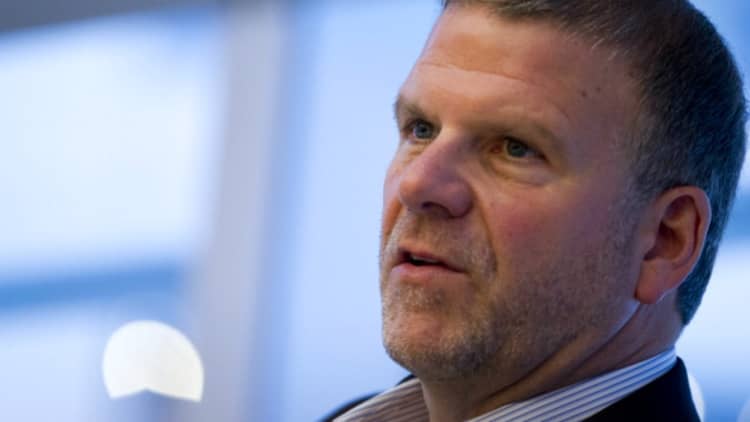In recent weeks, Papa John's founder and former chairman John Schnatter has drawn public outrage after he used a racial slur during a conference call.
“News reports attributing the use of inappropriate and hurtful language to me during a media training session regarding race are true," Schnatter said July 11 in a statement released by Papa John's. "Regardless of the context, I apologize. Simply stated, racism has no place in our society.”
The company announced plans to remove Schnatter's image from marketing materials July 13 after he resigned his position as chairman, as calls for boycotts and anger at the brand spread across Twitter.
Schnatter may be one of the most recent examples of corporate malfeasance, but public ire toward companies and their executives is nothing new: In 2017, we saw a drumbeat of stories about Uber CEO Travis Kalanick and boycotts of the brand, and a recent movement by Facebook users to delete the app after the Cambridge Analytica data scandal.
Consumers today have high expectations of the companies to which they give their hard-earned money. In a July 2018 report by analysts at Mintel, 87 percent of people surveyed agreed that "companies should always do the right thing, even if it isn't required by law." Overwhelming majorities also agreed that consumers "expect brands to be honest" and that "brands should operate in a socially responsible way."
But the question remains: What should you do when corporate leadership of a brand you like behaves in an unacceptable way?

Historically, the reaction has been to organize boycotts, says Timothy Werner, an associate professor at the University of Texas McCombs School of Business who researches activism. It's still a tool for consumers, but one that's evolving in the era of social media.
Before things such as Twitter and Facebook, “organizing a boycott, sustaining consumer interest in it, and getting people to actually follow through and be sincere used to be a lot more difficult," Werner says.
Today, you can show support for a cause by just hitting "like" or "retweet." But that has its upsides and its downsides.
"It creates this odd dynamic where boycotts are easier to organize, and we have more boycotts, but because it is really cheap to signal your support [for a cause], they’re less sincere and perhaps less effective,” Werner says, noting that there isn't much research yet on boycotts formed through social media.
Yet one thing remains the same, according to Werner: Boycotts have always been organized to send a message, not to hurt sales or revenue.
"It's the rare boycott where actual economic harm to the targeted firm is what the movement is trying to achieve," Werner says. "The economic piece of a boycott was always the weakest aspect of it. What companies are really wary about is their brand."
For example, even after public critique for its data practices and calls for boycotts, Facebook CEO Mark Zuckerberg told The New York Times in March he had not "seen a meaningful number of people act" on calls for users to delete their profiles.
But, the campaign did grab his attention. "I think it's a clear signal that this is a major trust issue for people, and I understand that," Zuckerberg said.
Public opinion matters a great deal to brands, Jeremy Kagan, an adjunct professor of marketing at Columbia Business School, tells CNBC Make It. After all, the most valuable thing they have is their reputation.
"While an individual tweet may not feel like it does much ... sentiment analysis and commentary that is happening online is being monitored in real time by every real brand," Kagan explains. "If there is commentary happening, if people are discussing this, suggesting and proposing boycotts, it really does come to the attention of people."
And that's a powerful tool. Dismissals of CEOs for ethical lapses saw a 36 percent increase between data collected from before 2011 compared with after 2012, according to a 2016 report by consulting firm PwC. A large reason for that shift can be attributed to public awareness, according to the Harvard Business Review.
"The public has become more suspicious, more critical, and less forgiving of corporate misbehavior," HBR reported in 2017. Concurrently, "the 24/7 news cycle and the proliferation of media in the 21st century publicizes and amplifies negative information in real time."
Yet there are drawbacks to more frequent public outrage. With politically charged boycotts arising again and again in today's divisive climate, it can be hard for any movement against a company to retain staying power, Brayden King, a professor at Northwestern University's Kellogg School of Management told the Chicago Tribune in 2017 after boycotts were called against Nordstrom, Starbucks and Under Armour.
"It's really difficult for the public to keep their attention on any one of these things," King said. "If you have so many boycotts competing for the public's eye, you're diluting the effect of the boycott."
Plus, it's important to consider the repercussions of negative attention on possibly innocent third parties, Werner notes.
"There is a sort of broader economic harm," he says. "Let's say you were going to boycott Papa John's now, well, [the founder] has already been removed from his position with the company. At that point, you're only harming those that are left." For example, independent business owners operating Papa John's franchises, who weren't involved in the corporate culture, are likely to take a hit as consumer sentiment for the brand declines.
"Papa John’s is not an individual. Papa John’s is a pizza company with 120,000 corporate and franchise team members around the world," the company's CEO, Steve Ritchie, wrote in an open letter to customers.
So do some preliminary research before taking action, Kagan suggests.
"I think it is really important for consumers who are trying to vote with their conscience and their wallet to really do a little bit of homework," Kagan says. Before taking your business away from a company as a whole, try to find out, "Is it a rogue employee? Is it an out-of-context remark that in retrospect might have been a bad choice or poor judgment but not necessarily representative of [the person]?"
Make sure the boycott or cause has a specific goal in mind to achieve, and is something you care about; being selective can help focus the conversation on meaningful issues. Then, commit to the boycott and find substitute products or services.
"Consistency between your attitudes and your behavior is key," Werner says. "If you are going to signal that you're going to participate in a boycott, actually do it."
Don't miss: This generation of workers is most stressed — and it's not millennials
Like this story? Subscribe to CNBC Make It on YouTube!



